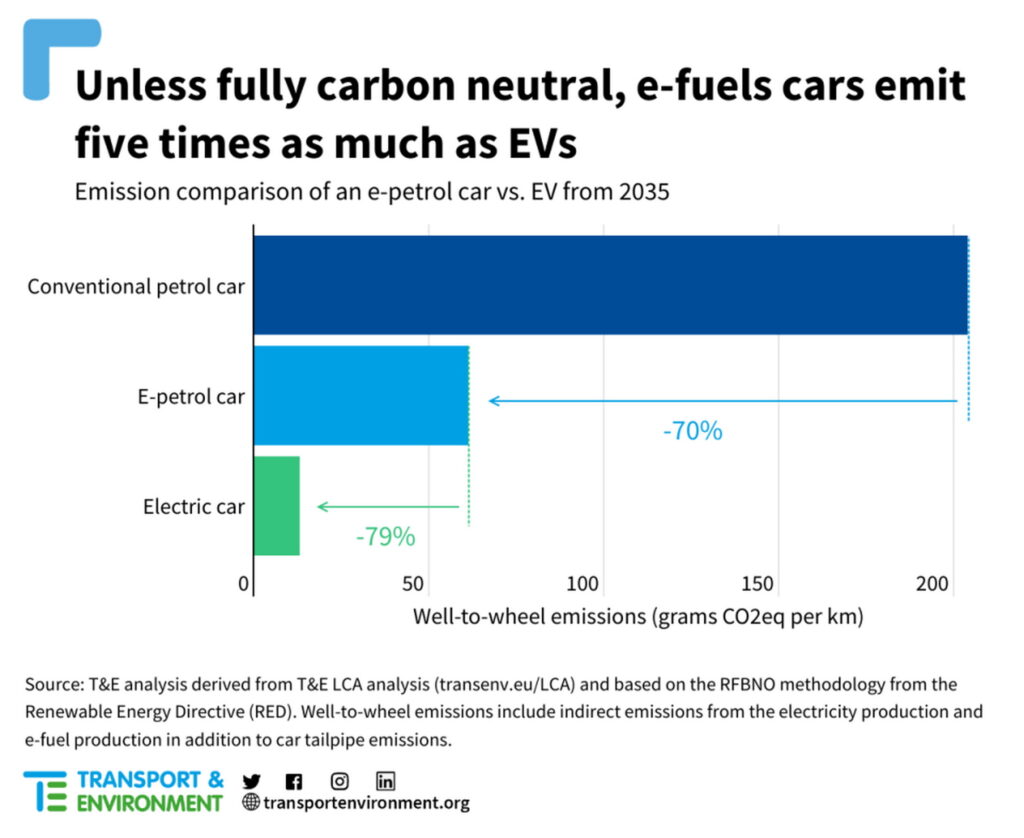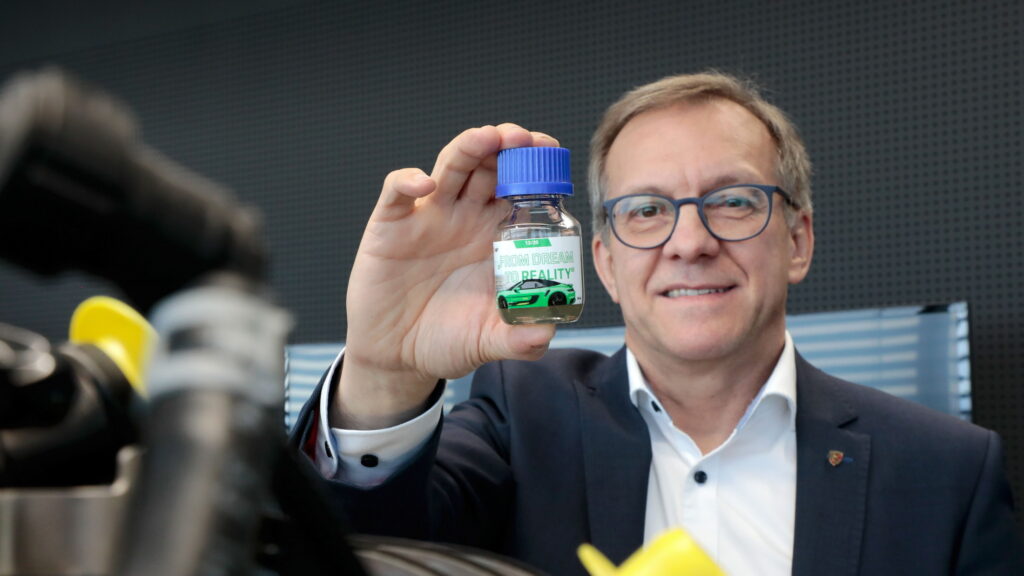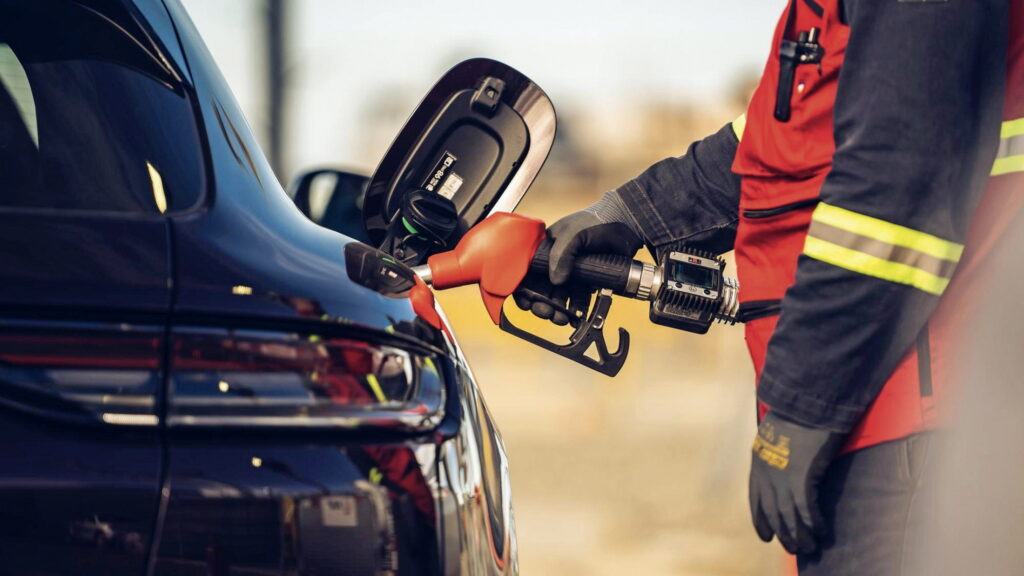Synthetic fuels are billed as a green alternative to regular gas and diesel that will allow ICE vehicles to stay on the road for years to come. So excited are brands like Porsche, that they claim that the technology could be almost as green as electricity. However, that ecological advantage is being chipped away.
In order to be as green as possible, e-fuels must be made out of captured CO2, in order to offset the emissions created by their production and distribution. However, the oil lobby is fighting to ease ecological requirements in the European Union.
Under current EU rules, only e-fuels that are 100 percent carbon-neutral can be used by the public. However, the oil industry wants to soften that rule, and Transport & Environment, a European think tank, claims that if the industry gets its way, e-fuels will emit five times more well-to-wheel CO2 than electric vehicles.
Read: Sebastian Vettel Takes E-Fuel-Powered F1 Car Around The Nurburgring

The oil industry is pushing for rules that would allow e-fuels that are 70 percent cleaner than gas and diesel. If that law passes, vehicles running on e-fuels could emit 61 grams of CO2 equivalent per kilometer in 2035.
By comparison, a fully electric vehicle running on electricity from the average European grid in 2035 would emit just 13 grams of CO2 per kilometer. But looking exclusively at CO2 doesn’t paint the full emissions picture.
In addition to carbon dioxide, vehicles burning synthetic fuels also emit air pollution in the form of NO2, a known carcinogen. Moreover, they emit as much NOx, the dangerous particle that launched the Dieselgate scandal, as fossil fuel engines. They also emit more carbon monoxide and ammonia.
“The European Commission has said e-fuels need to be carbon-neutral to escape the ban on new polluting cars after 2035,” said Alex Keynes, policy manager at T&E. “For years the e-fuels lobby told us how clean their fuels are, so it is incomprehensible why they could not meet the criteria as proposed.”
Therefore, as the EU looks for feedback on its e-fuels regulations, Transport & Environment is calling on the bloc to maintain strict carbon neutrality rules. Further, it says that synthetic fuel should not be considered emissions-free because it emits pollutants other than CO2.





